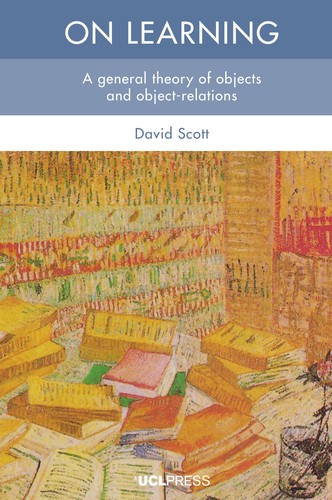The Intellect
Subscribe to this topic via: RSS
Saṅkhāra: How humans think and decide.

In The Wonderful Wizard of Oz, Dorothy gazes thoughtfully at Scarecrow, pondering his thoughtlessness while Toto looks on (1900, Public Domain).
Table of Contents
Books (11)
Featured:
See also:
Canonical Works (9)
Featured:
-
When your heart is not overcome and mired in ill will … even hymns that are long-unpracticed spring to mind, let alone those that are practiced.
See also:
Readings (27)
Featured:
-
⭐ Recommended
How saññā flattens the world into a symbolic representation for the sake of the intellect.
-
⭐ Recommended
Value capture happens when your environment presents you with simplified versions of your values, and those simple versions come to dominate your practical reasoning. Value capture offers you a quick shortcut—an opportunity to take on prefabricated values. You do not have to go through the painful process of value deliberation if you can get your values off the shelf.
-
⭐ Recommended
Nagarjuna seems willing to embrace contradictions while at the same time making use of classic reductio arguments. He asserts that he rejects all philosophical views including his own-that he asserts nothing-and appears to mean it. It is argued here that he, like many philosophers in the West and, indeed, like many of his Buddhist colleagues, discovers and explores true contradictions arising at the limits of thought. For those who share a dialetheist’s comfort with the possibility of true contradictions commanding rational assent, for Nagarjuna to endorse such contradictions would not undermine but instead confirm the impression that he is indeed a highly rational thinker. It is argued that the contradictions he discovers are structurally analogous to many discovered by Western philosophers and mathematicians.
-
⭐ Recommended
Many people in Silicon Valley and around the world now call themselves ‘Effective Altruists.’ Is there any way they might become ‘Responsible Adults?’
-
… language, concepts, and meanings are embodied through our dispositions, abilities, comportment, and actions
-
🥇 Best of
How to change your mind, according to science.
-
For me, understanding is more and more taking the form of understanding the necessity of the tensions and problems and the simple importance of my grappling with them. I do not seek their dissolution, for that would negate the human experience; rather, I seek to understand them, my relations to them, and how best to navigate them.
-
By comparing and contrasting these women’s accounts at two time points, this paper demonstrates the stark contrast between ‘lived experience’ of Spinal Muscular Atrophy and the various way(s) this experience was transformed into, and presented as, ‘knowledge’ through the processes of making, and accounting, for reproductive decisions. The analysis highlights that multiple, distinct and sometimes competing experiential frameworks are used to conceptualise SMA across time and context. However, rather than evidence of its fallibility, this finding highlights that ‘knowledge’ is an inappropriate vessel with which to capture and transfer ‘experiential knowledge’. Rather, we need to consider how to value such insight in ways that harnesses its inherent strength without leaving it vulnerable to the epistemological critiques attracted by labelling it ‘knowledge’.
-
Over three repeated interviews, participants developed false memories of the suggested events under minimally suggestive conditions (27%) and even more so using massive suggestion (56%). We then used two techniques to reduce false memory endorsement, source sensitization and false memory sensitization. This reversed the false memory build-up over the first three interviews, returning false memory rates in both suggestion conditions to the baseline levels of the first interview.
-
This paper revisits a landmark study of the prevalence of mental illness in the state of Massachusetts conducted by Edward Jarvis in the 19th century. Jarvis drew an improper conclusion about the relationship between social class, ethnicity, and insanity, asserting that the Irish foreign-born had a higher prevalence of insanity in each social stratum. A reanalysis of Jarvis’ data shows that in both the pauper and independent social classes in Massachusetts, the prevalence of insanity was significantly lower among foreign-born persons than among native-born persons.
-
Childhood lead exposure has devastating lifelong consequences, as even low-level exposure stunts intelligence and leads to delinquent behavior. However, these consequences may be more extensive than previously thought because childhood lead exposure may adversely affect normal-range personality traits.
-
The precise ways in which human cognition differs from that of other species remains a topic of intense debate, but many data currently support the hypothesis that it is an early emerging set of social skills for reasoning about conspecifics as intentional agents, coupled with a distinctly cooperative and prosocial motivation, that fuels many of our most remarkable cognitive achievements.
See also:
Audio/Video (44)
Featured:
-
⭐ Recommended

-
… your conscious mind is more a press secretary. You’re not the president or the king or the CEO. You aren’t in charge. You aren’t actually making the decision, the conscious part of your mind at least. You are there to make up a good explanation for what’s going on so that you can avoid the accusation that you are violating norms.
-
⭐ Recommended
 41 min
41 min -
How Freudian psychology can explain the appeal of Donald Trump’s rambling rhetoric and much else in (especially American) politics.
-
⭐ Recommended
There isn’t “knowledge” as we’re used to thinking about it: figuring out, given observations and experiences in the world, what is “true” and once you come to “knowledge” you get to keep it for life. I now appreciate that everything is beliefs, is just a best guess.
1h 32 m -
⭐ Recommended
They were very disoriented, obviously, after flipping. They got out of their seat belts and out of the car and, because I had skidded, my head was bleeding profusely…
-
Three podcast episodes about how to think about tricky ethical questions.
2h 7 m -
Kinesthetic genius exists. Intuitive genius exists. It’s simply that we may not always identify it as ‘genius.’
-
The author of Why Smart People Make Stupid Mistakes discusses the dangers of intelligence and how to avoid them through intellectual humility.
63 min -
 18 min
18 min -
 36 min
36 min -
A couple stories on the importance of letting go when things change.
35 min -
 12 min
12 min -
 11 min
11 min -
⭐ Recommended
I raise a finger to a point in the night…
5 min -
⭐ Recommended
Human horrors
are not inevitable. Some people stop
themselves, before they cross moral divides.5 min -
⭐ Recommended
Everything’s been said
But one last thing about the desert,
And it’s awful: …5 min -
what counts here does anything count
on the short walk while looking down and then over then up…6 min -
You were between two animals.
Between two attributions.
At the crotch of a river’s fork.
At a loss, at least…5 min -
Whatever I learn makes me angry to have learned it.
5 min -
Over Canada / or two hours of frozen waves I assume is Canada /
I’m surrounded by babies / so many babies…5 min -
I share my house with a colony of bats.
They live in the roof peak,
enter through a gap.5 min -
Once I heard a scientist with
Alzheimer’s on the radio, trying to
figure out why he could no longer
draw a clock.5 min
See also:



